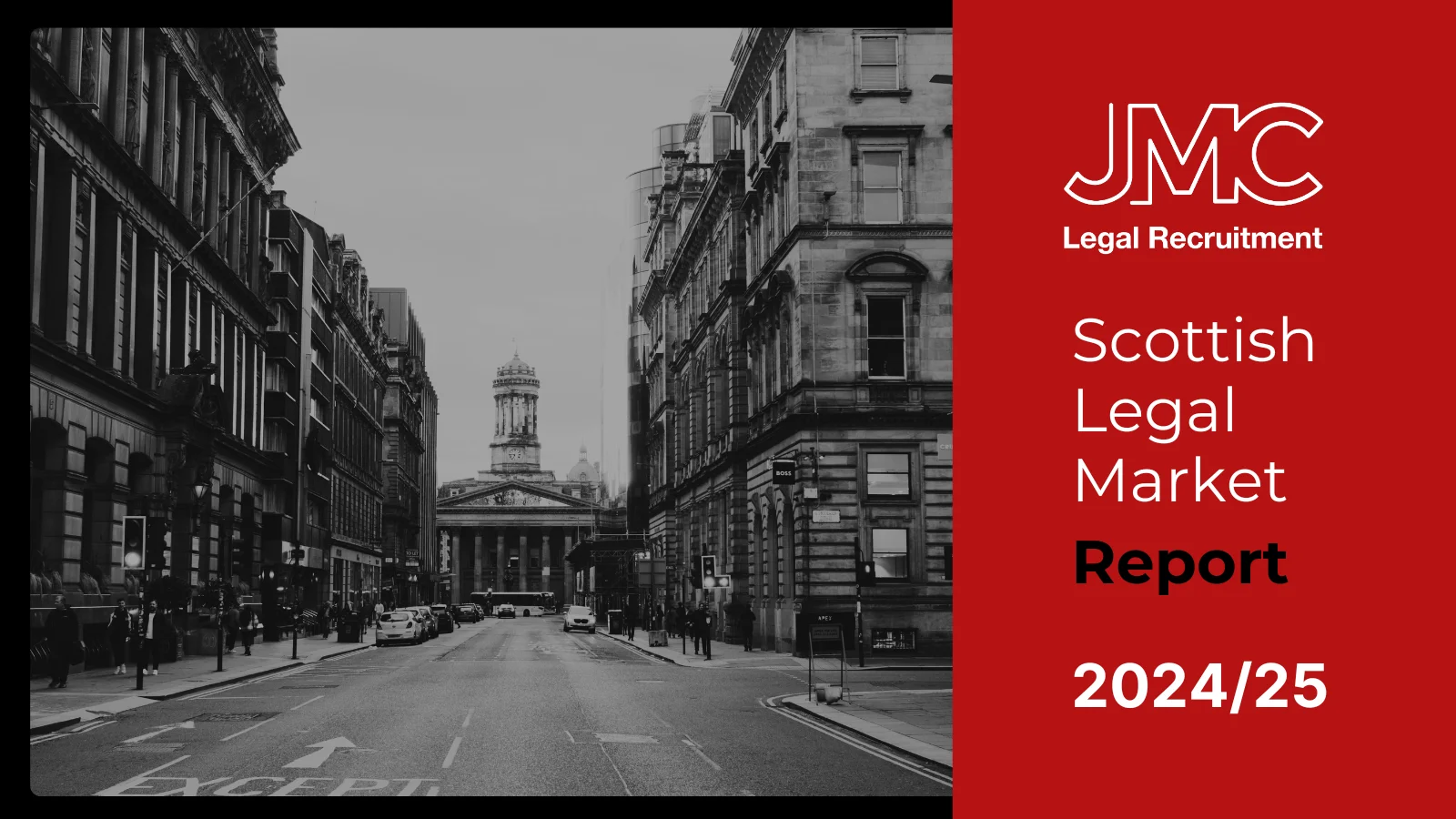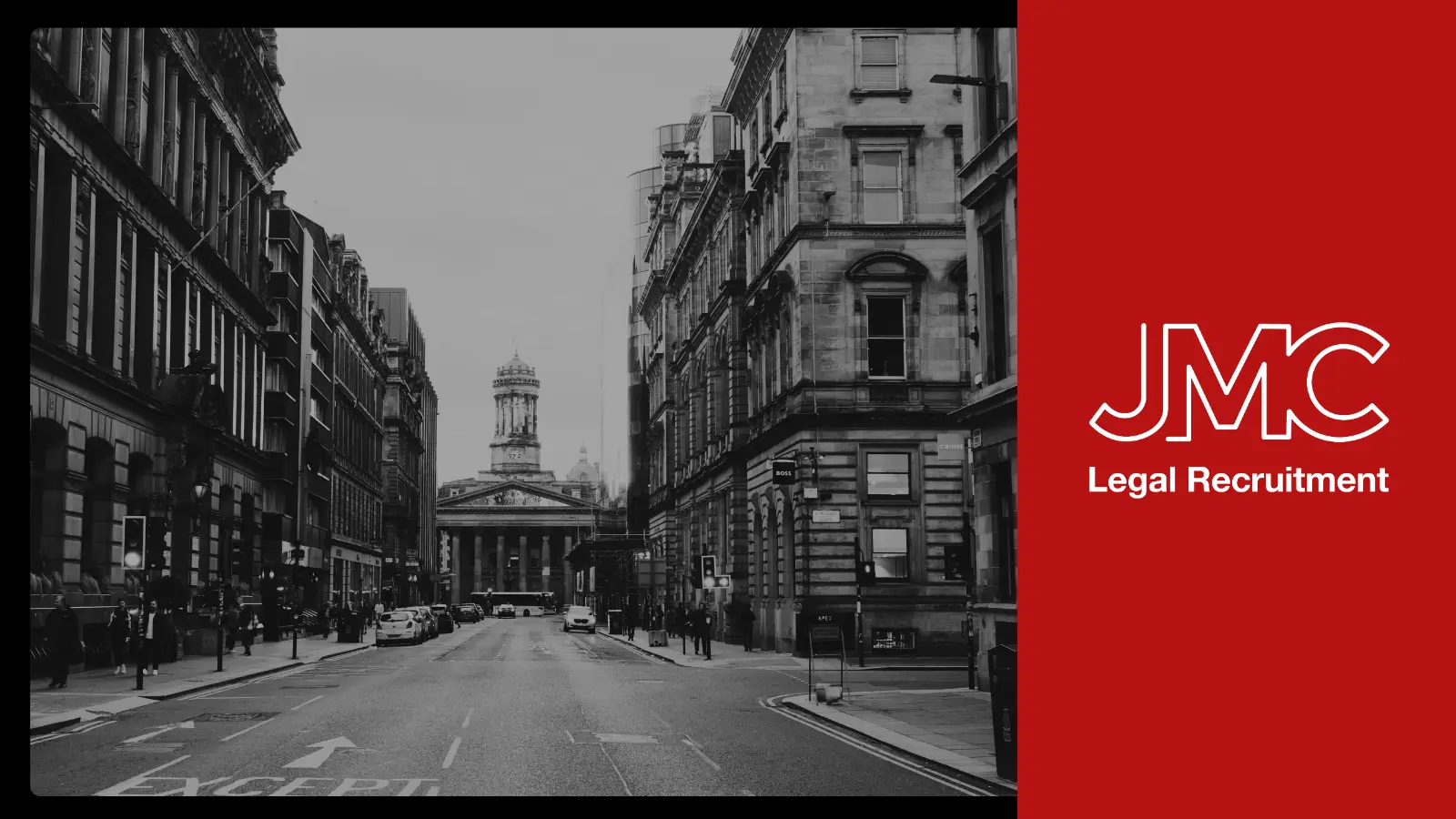
Paralegal Salaries in Scotland
25 Nov, 20255 minutes
Paralegal Salaries in Scotland
What the Scottish Legal Market Really Looks Like in 2025 for Paralegals
Paralegals have always been the most essential and increasingly difficult-to-recruit professionals within Scottish law firms. Whether you’re building a long-term career as a paralegal, entering the profession for the first time, or a firm struggling to secure reliable support staff, understanding current salary benchmarks is crucial for planning ahead.
So, what do paralegals in Scotland earn today and what’s driving the growing divide between entry-level and senior-level pay?
Salary Bands for Paralegals in Scotland
While the paralegal job title can cover everything from administrative support to highly skilled, fee-earning specialists, most salaries in Scotland fall within the following broad brackets:
- Entry-level or junior paralegals (6 months – 2 years experience) typically earn between £22,000 and £25,000.
- Mid-level paralegals (2-5 years experience) tend to fall between £25,000 and £30,000.
- Senior or specialist paralegals (5-10 years experience) can expect salaries ranging from £30,000 to £45,000 and, in some cases, higher depending on their expertise.
The upper end, around £40,000 to £45,000, is usually reserved for career paralegals who have developed deep technical knowledge, manage their own caseloads and support solicitors on high-value or complex matters. This can vary across practice areas, but the pattern is broadly consistent.
For firms, these experienced paralegals are viewed as essential to the efficiency and stability of their teams. They are trusted with complex matters, often fee-earning at a higher level than many of their solicitor counterparts and are valuable team members firms do not want to lose. Their depth of knowledge and long-term experience is incredibly difficult to replace, especially given the well-known shortage of career paralegals within the Scottish market.
Why Do Some Paralegals Earn £45K+?
This is quite rare and will usually be someone who is at the top of their game and essentially operating like a Solicitor. Experience is the biggest driver and, more harshly, so is how much the firm or department genuinely values its support staff. It’s a difficult point to make, but it is common for firms to request a Paralegal with several years of experience, in a busy area like Real Estate, while only wanting to pay £25k, which simply isn’t realistic in a market where experienced candidates are in such short supply.
The Paralegals earning over £40K are almost always those with a minimum of 5 or more years in the role who can run matters independently and act as core members of their teams. Raising the ongoing question of how much specialist knowledge should influence salary, but in Scotland, it’s rarely the factor that moves the dial.
Practice area differences exist, but they tend to be modest. What truly shifts a Paralegal’s value is their ability to handle work autonomously, support fee-earners effectively and operate as a stable long-term member of the team.
Another defining factor is how difficult these individuals are to replace. Losing an experienced career Paralegal creates a productivity gap that is not easy to fill. Training someone new can take months and the knock-on impact on fee-earners can be significant. As a result, retaining long-term Paralegals has become a genuine priority for many firms.
The Biggest Hiring Challenge: The “Stepping Stone” Issue
A large part of the Scottish paralegal market is made up of recent graduates who see the role as a stepping stone to a traineeship. Many stay for only six to twelve months to build up legal expertise whilst seeking a training contract elsewhere. As NQ rates continue to rise at unprecedented levels and the career earnings gap between paralegals and qualified lawyers continues to grow, fewer people are pursuing paralegaling as a career. While the push and pull factors here are completely understandable, they create ongoing challenges for firms that rely heavily on stable support staff.
This leads to two consistent issues across the market:
- High turnover. Constantly losing paralegals after short stints disrupts workflow, reduces continuity and puts additional pressure on the team members who remain. Fee-earners often end up absorbing tasks or training replacements at the worst possible time.
- Salary suppression for career paralegals. Because a large proportion of paralegal roles are viewed internally as temporary or transitional, salaries have historically been benchmarked at the lower end. This has unintentionally disadvantaged experienced career paralegals, making it harder for firms to justify paying them competitively despite the value they bring.
The firms that recognise this shift and start separating temporary pathway roles from genuine long-term paralegal positions are the ones best placed to retain experienced staff and strengthen the stability of their teams.
The Inequality of Hybrid Working for Paralegals
One growing source of frustration for paralegals in Scotland, and even for some talent acquisition teams advocating on their behalf, is the lack of access to hybrid or flexible working. Despite being some of the lowest-paid people in the firm, many are still expected to be in the office five days a week to handle client walk-ins, urgent filings and the day-to-day tasks that keep a practice running.
At the same time, although there is certainly a return to the office push present in the market, it’s not unusual for Solicitors or Partners earning several times their salary to work from home multiple days a week and have real flexibility around their schedule. It’s an imbalance that’s becoming harder to justify.
This is also a major factor in turnover. Even when salaries are identical, paralegals will often move to a firm offering hybrid working because the savings on travel, time and general wellbeing make a tangible difference.
If firms want to retain their support teams, they need to rethink who is always “on call”. These responsibilities should not fall solely on paralegals. Sharing them among all junior staff, including junior solicitors, creates fairness, builds stronger teams and gives junior lawyers something they increasingly lack in a hybrid world: consistent face-to-face exposure, hands-on experience and deeper insight into how a practice actually runs.
The Importance of Moving Quickly in the Hiring Process
A clear trend has emerged in the Scottish market: the firms that move quickly are the ones securing the best paralegals.
Hiring managers take note: in a competitive, candidate-short market, speed can be your biggest advantage. Delays in internal sign-off, slow decision-making and multi-stage interview processes almost always result in losing strong candidates to firms that simply act faster.
Paralegals with long-term experience are in especially high demand and when they enter the market, they often receive multiple approaches within days. Many interviews with several firms simultaneously, and the employers who provide a streamlined, efficient process consistently win the race.
Support staff also feel the impact of slow processes more acutely than fee-earners. Long gaps between interviews, unclear communication or delays in moving to the offer stage can easily push a candidate toward a competitor who demonstrates commitment early. In a market already strained by high turnover and increasing workloads, hesitation can mean missing out on exactly the type of reliable, experienced support teams urgently need.
Ultimately, fast hiring is no longer simply good practice; it is essential in attracting and retaining the talent that keeps firms operating smoothly.
The Takeaway
Paralegal salaries in Scotland now range from roughly £22K at entry level to £45K+ for experienced, long-term specialists. This widening spread is being driven by a shortage of committed career paralegals, the constant turnover of graduates pursuing traineeships and the persistent gap in how support staff are valued compared with fee-earners. Yet the reality is unavoidable: without skilled, high-performing paralegals, a firm’s success simply isn’t sustainable, and it’s time the industry recognised that.
For firms, the message is simple: value your paralegals properly. Retain the ones who want to build a career in the role, invest in their development and move quickly when hiring. There is still a noticeable divide in how paralegals are treated compared with other legal professionals, but there are clear, tangible steps firms can take to close that gap:
- Better pay progression
- Hybrid working
- Clearer career pathways
- Greater inclusion in team-wide and firm-wide opportunities
For candidates, paralegal-ing can be an incredibly rewarding long-term path. It offers the chance to build deep technical expertise, develop strong client relationships, take on meaningful responsibility and carve out a career that is secure, skilled and intellectually engaging. It also appeals to those who enjoy the legal work itself but don’t necessarily want the pressures, targets or time commitments that come with qualification.
For Scotland’s legal market, the direction of travel is clear. The firms that recognise the value of their paralegals, invest in them properly and create fair, modern working conditions will be the ones that build stable, high-performing teams. And the candidates who commit to the role, build specialist knowledge and position themselves as long-term experts will find that being a paralegal is not a stopgap, but a career with real depth, credibility and earning potential.
If you’d like support, advice, or want to hear more about the Scottish Paralegal market, don’t hesitate to reach out to Tilly Scott via tilly@jmc-legal.com
Scottish Market Report 2025/2026
How to Become a Partner in a Law Firm
How to Get a Training Contract as a Paralegal



